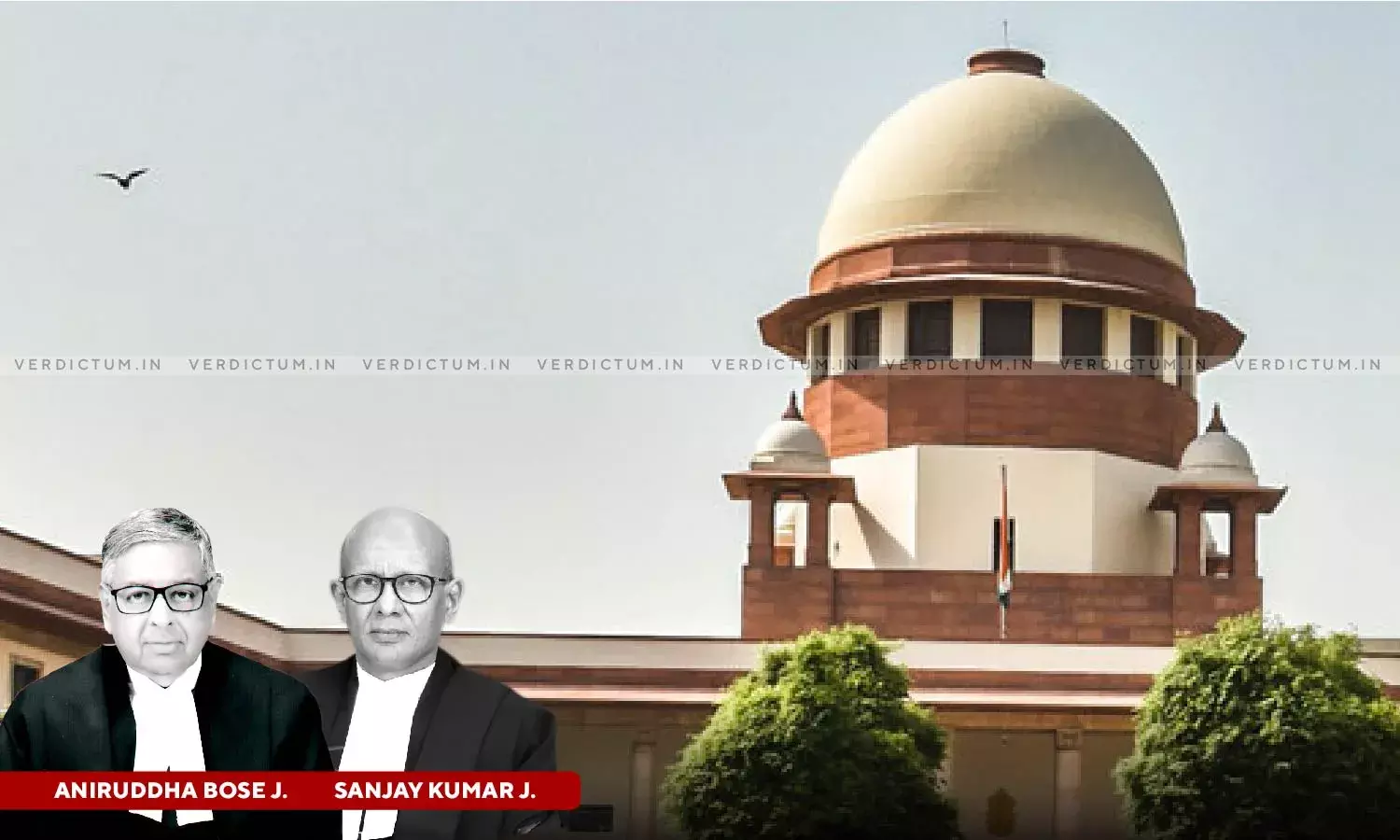Mere Commercial Disputes Over Variation Of Rate Cannot Give Rise To An Offence U/S. 405 IPC : Supreme Court

The Supreme Court observed that the commercial disputes over variation of rate cannot give rise to an offence under Section 405 of the Indian Penal Code (IPC) without presence of any aggravating factor leading to the substantiation of its ingredients.
The Court observed thus in an appeal preferred against the Allahabad High Court that dismissed the accused's plea to quash the criminal proceedings.
The two-Judge Bench comprising Justice Aniruddha Bose and Justice Sanjay Kumar held, “Past commercial relationship between the appellant’s employer and the respondent no.2 is admitted. It would also be evident from the petition of complaint the dispute between the parties centred around the rate at which the assigned work was to be done. Neither in the petition of complainant nor in the initial deposition of the two witnesses (that includes the complainant) the ingredients of the offence under Section 405 of the 1860 Code surfaced. Such commercial disputes over variation of rate cannot per se give rise to an offence under Section 405 of the 1860 Code without presence of any aggravating factor leading to the substantiation of its ingredients.”
The Bench said that at the stage of issuing summons, a Magistrate only needs to be satisfied with a prima facie case for taking cognizance but the duty of the magistrate is also to be satisfied whether there is sufficient ground for proceeding.
Senior Advocate Mukul Rohatgi and Advocate Guru Krishna Kumar appeared on behalf of the appellant while Advocates Divya Jyoti Singh and Sarvesh Singh Baghel appeared on behalf of the respondents.
Factual Background -
The appellant was the Head of factory of Exide Industries Limited (EIL), a corporate entity situated in Haryana and the respondent ran a proprietary concern, Ambika Gases. He was the supplier of Dissolved Acetylene Gas (DA Gas) which was used for manufacturing battery in the said factory. A dispute arose over a purchase order issued for the supply of the said item and the original purchase order was amended twice based on the representations made by the supplier. Through the two amendments, rate was increased twice and an invoice was raised by the supplier for a total sum of Rs. 9,36,693.18/-.
The dispute revolved around non-payment of the aforesaid amount but it was contended that after ascertaining the market price of DA Gas from other vendors, the EIL reconciled the accounts by informing the supplier of what it claimed was foul play with respect to revision of rates and appropriated the alleged illegal amounts claimed by the vendor/supplier from the invoice. The supplier instituted a complaint case and the Magistrate issued summons for trial under Sections 406, 504, and 506 of IPC. The factory head approached the High Court for quashing the said summons and the complaint but his application was dismissed.
The Supreme Court in view of the above facts noted, “We do not find any material to come to a prima facie finding that there was dishonest misappropriation or conversion of any material for the personal use of the appellant in relation to gas supplying work done by the respondent no.2. The said work was done in course of regular commercial transactions. It cannot be said that there was misappropriation or conversion of the subject property, being dissolved acetylene gas which was supplied to the factory for the purpose of battery manufacturing at EIL.”
The Court said that the Magistrate’s order issuing summons records the background of the case in rather longish detail but reflects his satisfaction in a cryptic manner and at the stage of issue of summons, detailed reasoning as to why a Magistrate is issuing summons, however, is not necessary.
“But in this case, we are satisfied that the allegations made by the complainant do not give rise to the offences for which the appellant has been summoned for trial. A commercial dispute, which ought to have been resolved through the forum of Civil Court has been given criminal colour by lifting from the penal code certain words or phrases and implanting them in a criminal complaint. The learned Magistrate here failed to apply his mind in issuing summons and the High Court also failed to exercise its jurisdiction under Section 482 of the 1973 Code to prevent abuse of the power of the Criminal Court”, it added.
The Court further observed that no case at all has been made out that would justify invoking the machinery of the Criminal Courts and that the dispute is commercial in nature, having no element of criminality.
“… the allegation of criminal intimidation is against the appellant directly – whatever be the value or quality of such allegations. Thus, for that reason the complaint case cannot be rejected at the nascent stage on the sole ground of not implicating the company. But as otherwise we have given our reasons for quashing the complaint and the summons, we do not find any reason to dilate further on this point”, it concluded.
Accordingly, the Apex Court allowed the appeal, set aside the impugned judgment, and quashed the complaint.
Cause Title- Sachin Garg v. State of UP & Anr. (Neutral Citation: 2024 INSC 72)
Appearance:
Appellant: AOR Misha Rohatgi, Advocates Sushil Shukla, Nakul Mohta, Devansh Srivastava, Alina Merin Mathew, and Muthu Thangathurai.
Respondents: AOR Rajat Singh, Advocates Aviral Saxena, Sarthak Chandra, Arun Pratap Singh Rajawat, and Vanshaja Shukla.


